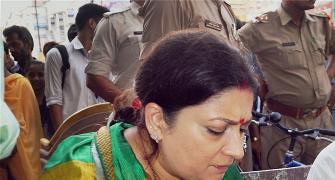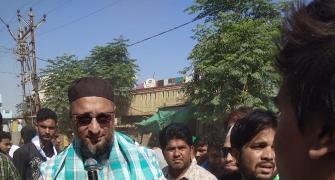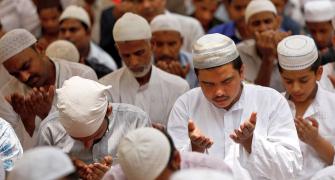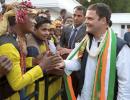Modi and Shah addressed rallies away from the four major urban centres of Gujarat: Ahmedabad, Vadodara, Surat and Rajkot.
Vinay Umarji reports.
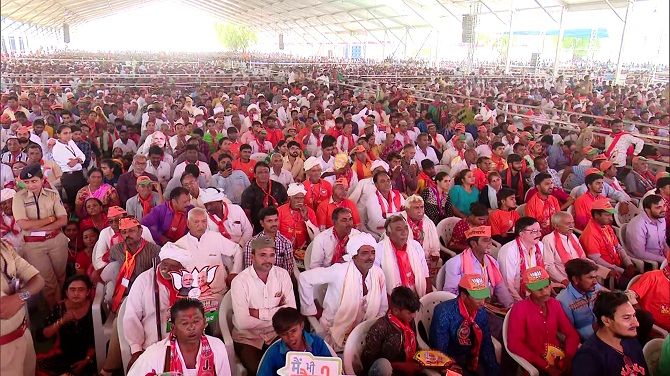
As the Bharatiya Janata Party and the Congress ended their Gujarat campaigns on Sunday, April 21, one thing was obvious: The game has shifted away from urban centres.
The two BJP heavyweights, Prime Minister Narendra Damodardas Modi and party President Amit Anilchandra Shah, largely addressed public gatherings away from the four major urban centres of Gujarat: Ahmedabad, Vadodara, Surat and Rajkot. This was barring one public gathering addressed by Shah in Ahmedabad. Gujarat votes on April 23.
While Modi addressed gatherings in rural heavy regions in north, central and Kutch-Saurashtra, including Himmatnagar, Surendranagar, Anand, Amreli, Junagadh, and Patan, Shah addressed gatherings in Kodinar, Veraval, Chhota Udepur, and Bardoli.
On the other hand, both Rahul Gandhi's public addresses were in the largely agrarian Kutch-Saurashtra region: Rajula and Bhavnagar. He also addressed rallies in Bhuj and Navsari.
The Congress' Gujarat candidates too have been spread out, conducting mostly door-to-door campaigns. Yet, this is nothing compared to 2014 Lok Sabha polls when public gatherings in urban centres like Surat, Ahmedabad and Vadodara were held by crowd pullers of both parties.
Political observers believe the low key, rural heavy, Gujarat campaign by both parties exhibit that the picture after the May 23 results will be slightly different in the state than in 2014 when the BJP won all 26 seats.
What's more, even the BJP's internal calculations conclude that the party could see losses in at least a couple of seats.
"There are some uncertainties in a couple of seats, but we are hoping things will turn on the voting day," says an insider.
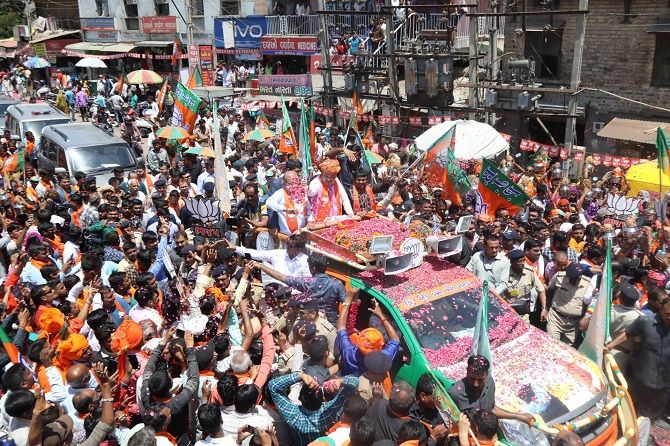
On the other hand, riding on the anti-incumbency mood in the agrarian areas and among certain communities, including the Patidar (Patel), Congress candidates are more optimistic this time.
For instance, in what otherwise seems to be a foregone conclusion in the David-Goliath kind of contest for the Gandhinagar seat between Shah and Congress candidate C J Chavda, the latter believes his party will win.
Chavda's argument is that despite Shah's confidence of winning from Gandhinagar, the BJP president had to conduct public gatherings and roadshows apart from holding meetings.
"The fact that he had to stay back in Gujarat and meet different communities show that it is not a foregone conclusion yet. We, on the other hand, are confident of taking the lead in four of the seven assembly constituencies in the Gandhinagar seat," says Chavda.
The buzz within the BJP, however, is that Shah could win the Gandhinagar seat with the highest margin ever, outperforming Pritam Munde, the late BJP leader Gopinath Munde's daughter, who won by nearly 700,000 votes from the Beed seat in Maharashtra in a bypoll.


